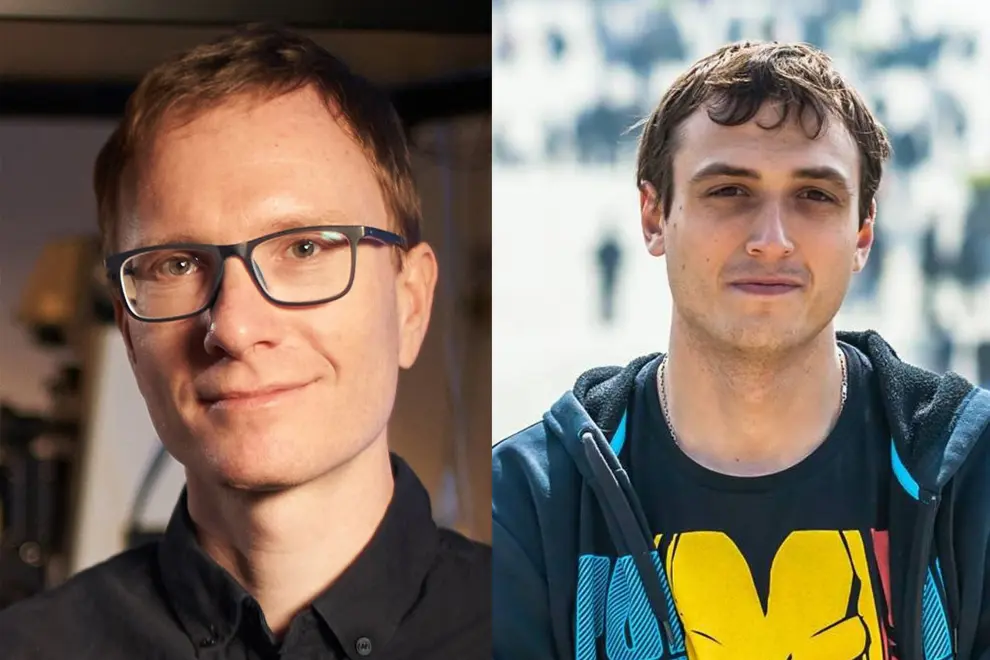Jožef Stefan Institute researchers win ERC consolidator grants
Matjaž Humar and Andrii Tykhonov, researchers at the Ljubljana Jožef Stefan Institute, have won European Research Council (ERC) grants to consolidate their independent research careers.
Humar will develop new sources of quantum light in soft and biological matter, while Tykhonov will try to accurately detect ultra-high-energy cosmic rays.
The pair's projects were among the 328 selected for financing from a total of 2,313 applications from all over the world in the latest ERC call for applications.
The two top-level scientists had received ERC starting grants in the past and Humar also won an ERC proof of concept grant earlier this year for a project aiming to produce lasers from edible materials.
Slovenia's leading research institution, the Jožef Stefan Institute is now implementing ten ERC research projects as a host institution, and this time also the first in space science.

Researchers Matjaž Humar and Andrii Tykhonov. Photo: Jožef Stefan Institute
The latest approved project of Humar, the head of the Laboratory for Biological and Soft Photonics and Quantum Optics at the Condensed Matter Physics Department, is worth over €2.3 million.
The objective of the five-year SoftQuanta project is to develop previously non-existent sources of quantum light in soft and biological matter on the basis of liquid crystals.
Like liquid crystal displays (LCDs) can change the brightness and colour of individual elements of the image, it is now expected that it will also be possible to change the quantum properties of light, i.e. develop a "quantum LCD".
Single-photon light sources in biological materials will also be used for new applications, such as cell labelling and the production of a fully biological single-photon source.
The new light sources expected to be developed will have a major impact on quantum sensing, imaging, communications and even quantum computing, and the project has the potential to radically transform quantum optics, the Jožef Stefan Institute says.
Tykhonov, a Ukrainian-born astrophysicist who obtained his PhD in Slovenia, will continue his research work in the country with a new five-year ERC project worth €2 million, called PeVGALAXY.
Its objective is to accurately detect ultra-high-energy cosmic rays for the first time, which would enable scientists to precisely determine the source of the most powerful star explosions in our galaxy.
By using measurements of cosmic rays, the project aims to solve one of the great mysteries of modern science - the nature of dark matter, which makes up most of the mass of the universe, while eluding direct detection.


